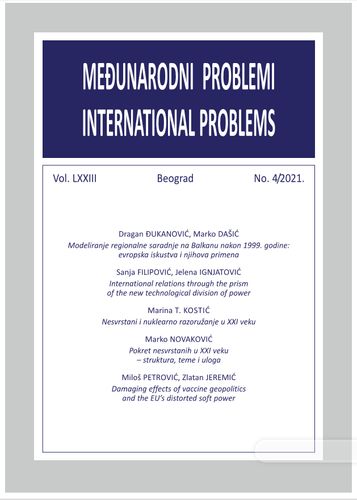Damaging effects of vaccine geopolitics and the EU’s distorted soft power
Damaging effects of vaccine geopolitics and the EU’s distorted soft power
Author(s): Miloš Petrović, Zlatan JeremićSubject(s): International relations/trade, Geopolitics
Published by: Институт за међународну политику и привреду
Keywords: vaccine nationalism; EU;COVID-19;challenge; inoculation;power;Russia;China;reputation;CEE;
Summary/Abstract: The authors deliberate that the EU’s soft power leadership has been inadequate during certain periods of the pandemic, being additionally challenged by proactive campaigns of other international actors. According to the authors, such EU underperformance primarily lies in the damaging fact that the Union perceives and treats aspects like the inoculation process not solely as a health-humanitarian issue, but also as a geostrategic activity. The authors consider that EU logic has been largely shaped by the pre-existing geopolitical distaste for China and Russia, and hence also their subsequent COVID-19-related engagement in Europe. Apart from strategic rivalries, EU international status has been exacerbated by deteriorating relations with the UK. According to the authors, the aforementioned international actors have been applying various soft power instruments during the mass inoculation process against COVID-19 in Europe, which also resulted in consequences that are usually attributed to hard power. Antagonisms between the abovementioned stakeholders manifest in unfavorable phenomena such as “vaccine nationalism” and “jab geopolitics”. The authors argues that a less selective, and more flexible and pragmatic approach would have been more beneficial both for public health and the EU’s impaired reputation in certain parts of CEE.
Journal: Међународни проблеми
- Issue Year: LXXIII/2021
- Issue No: 4
- Page Range: 709-735
- Page Count: 27
- Language: English

